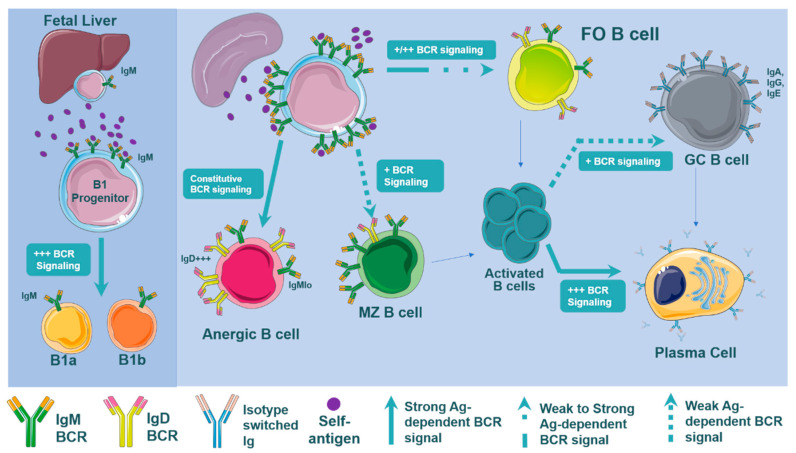Figure 1.
B cell development is dependent on B cell signal strength. Signaling through the B cell receptor (BCR) after (self)antigen recognition drives B cell differentiation through all stages of B cell development. Differentiation of B cells into B1, MZ, and FO B cells is mediated by positive and negative selection of BCR binding to antigens. B1 development is driven by strong BCR-derived signals. The spleen facilitates maturation of transitional IgM+IgD+ B cells to mature naïve MZ or FO B cells through negative selection: testing the autoreactiveness of the mature BCR. At this stage of maturation, highly reactive BCRs result in constitutive BCR signaling and fail to mature, instead, generating anergic B cells with an elevated surface IgD:IgM ratio. Transitional B cells that facilitate weak BCR signals preferentially differentiate to MZ B cells. In contrast, differentiation into FO B cells can occur with very weak or moderately strong BCR signals. The next stage of B cell development occurs after antigen binding and B cell activation. Weaker BCR signaling of activated B cells facilitates GC formation before becoming long lived plasma cells, while strong BCR signaling directs B cells to differentiate directly into short lived plasma cells. Surface expression levels of IgM and IgD and the types of antigen that are encountered mediate the activation of B cells and subsequent terminal differentiation.

